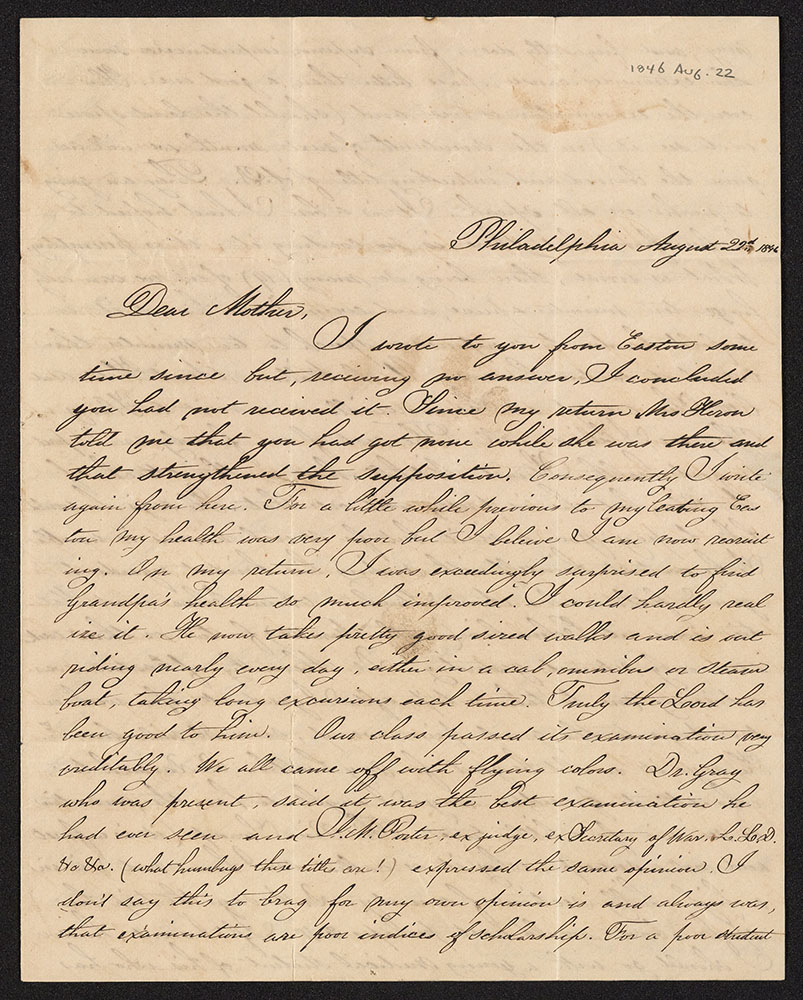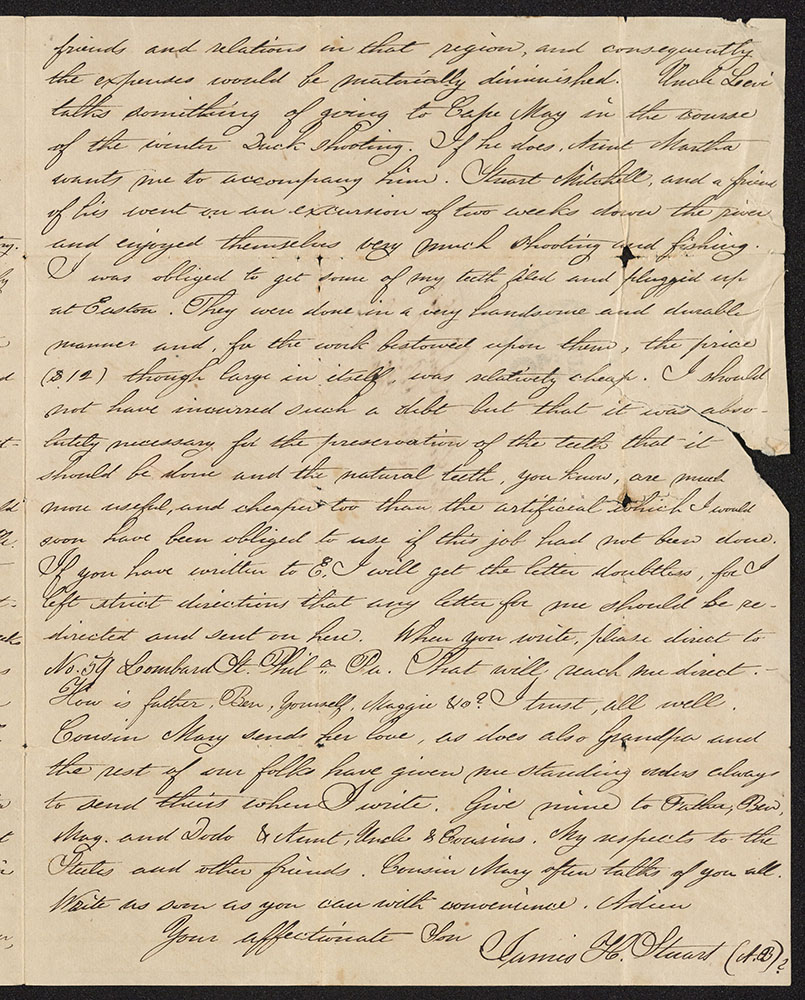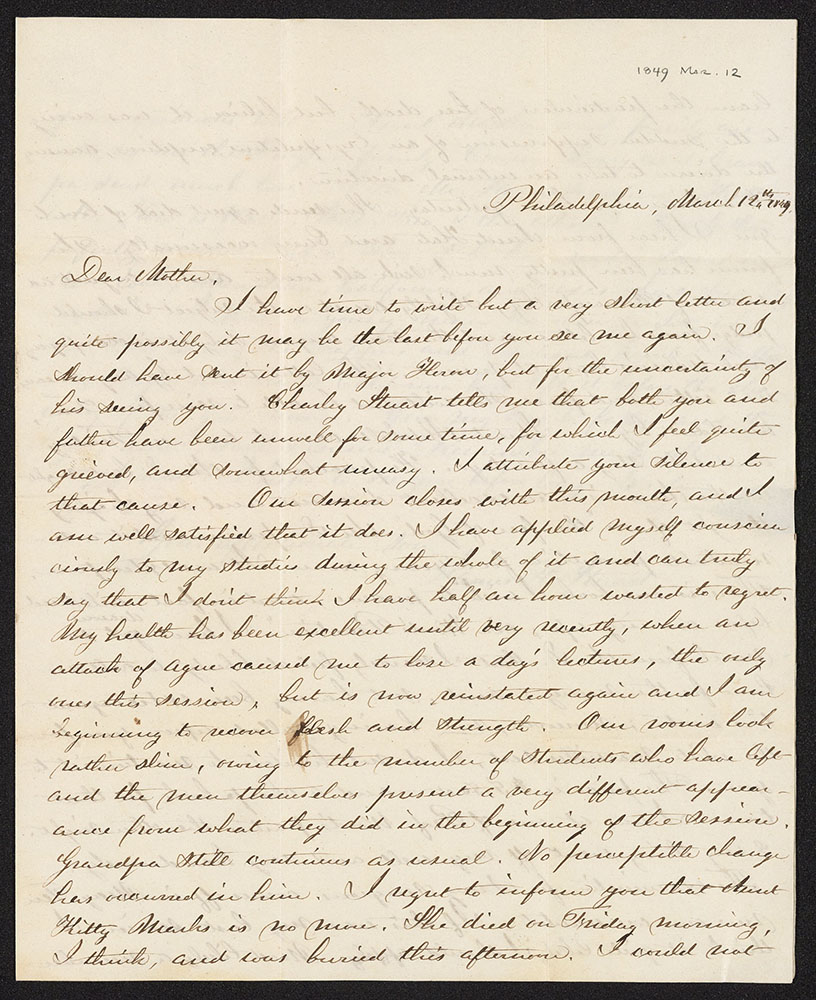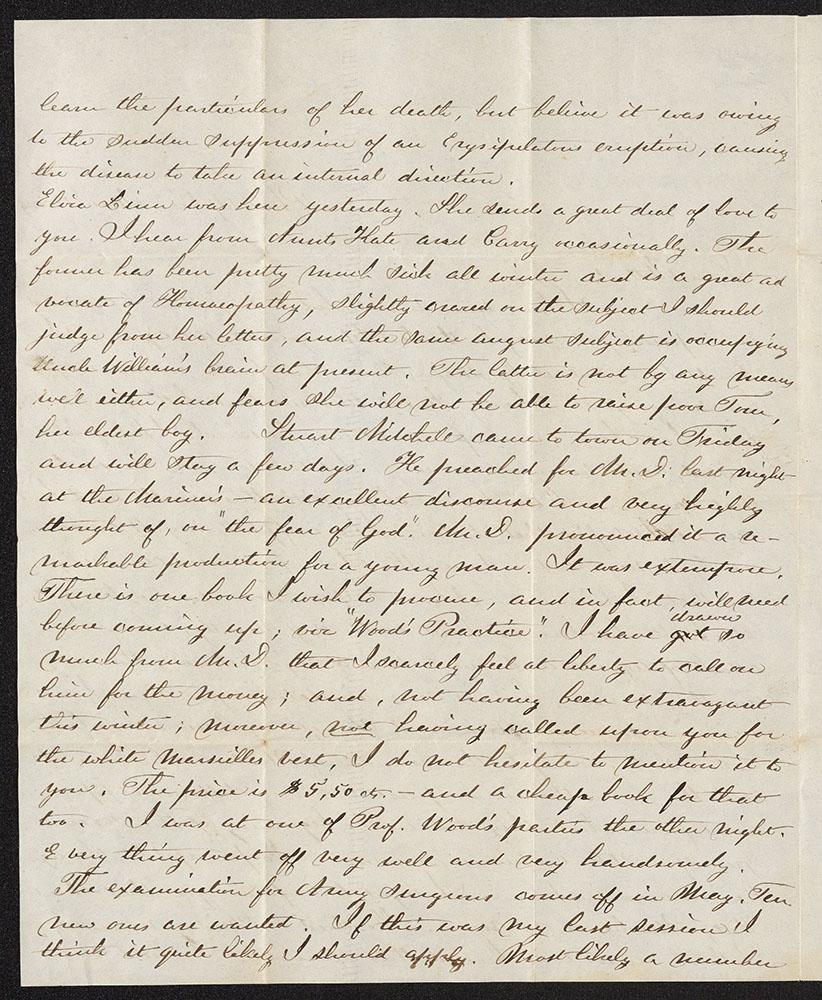…epidemic. Check out all our resources related to epidemic (or epidemics) here!
Primary Source Sets
MHL Collections
Reference Shelves
It’s important to remember among all the focus on COVID19 that other illnesses continue to exist as usual — for example, many of us are experiencing the fun that is seasonal allergies right now (with an additional helping of extra glares when we happen to sneeze in public).
Check out all our holdings on hay fever here!
If you happened to miss the presentations for the online LAMPHHS (formerly ALHHS) 2020 conference, they were recorded and are now freely available on YouTube!
Even in the middle of a pandemic, we’re still adding new items — here are a few of the most recent:
You can always see the full collection on Internet Archive.
We’ve got over 300,000 items available there and over 4 million images harvested from those 300,000 items available via our Flickr site.
Our collections span seven centuries and we are eager to support you in your work, particularly at a time when medical history and medical humanities is at the forefront of everyone’s attention.
If you have questions or concerns, please don’t hesitate to be in touch with us at medicalheritage (@) gmail (.) com.
~This post courtesy Chrissie Perella and Beth Lander.
We are pleased to announce that over 20,000 pages of lecture notes and related material has been digitized to date as part of “For the Health of the New Nation” grant. “For the Health of the New Nation: Philadelphia as the Center of American Medical Education, 1746-1868” is a two-year project funded by CLIR and organized by the Philadelphia Area Consortium for Special Collections Libraries (PACSCL). The initiative will digitize, describe, and provide access to 140,000 pages of lecture tickets, course schedules, theses, dissertations, student notes, faculty lectures notes, commencement addresses, opening addresses, and matriculation records, sharing not only the voices of the medical greats, but also the often unheard voices of students.
Some of the highlights included in our first batch of uploads to the Internet Archive include the Samuel Knox notes on lectures from the University of Pennsylvania (1783-1785), a two-volume set of notes on topics such as midwifery, symptoms of pregnancy and labor, typical and atypical births, and postnatal care. These notes are one of the earliest sets of student lecture notes in the Library’s collection. The contain Samuel Knox’s 1783 abstract of Colin McKenzie’s lectures on midwifery in 1773 at the University of Pennsylvania as well as Knox’s notes on Adam Kuhn’s materia medica lectures and Benjamin Rush’s chemistry lectures at the University of Pennsylvania, 1784-1785. Although we may not have many (if any) patient records from 18th-century Philadelphia, these lecture notes can tell us a lot about preventive care and treatments for illnesses in contemporary times. For example, Knox notes that “Bleeding [bloodletting] in the first three or four months prevents abortion.” Bloodletting was not uncommon in late 18th century and early 19th century obstetrics.
Other materials digitized as part of “For the Health of the New Nation” give us insight into the lives of medical students. The Forster family papers (1819-1880) include letters from James H. Stuart to his mother and brother, Benjamin, which concern his training and experiences as a medical student in Philadelphia at the University of Pennsylvania. James earned his M.D. from the University of Pennsylvania in 1850. He opened a medical practice in Erie, and later became an Assistant Surgeon in the U.S. Navy. He was a member of Commodore Matthew Perry’s expedition to Japan in the 1850s, and was lost at sea off the Chinese coast in September 1854.
On 22 August 1846, James wrote his mother to say that his class had passed their examinations with “flying colors” and that Dr. Gray had “said it was the best examination he had ever seen.”



In a later letter, dated 12 March 1849, James asks his mother to send money for a book entitled “Wood’s Practice,” which he says at $5.50 is a cheap book. We have two copies of this book, as well as several archival collections created by or relating to George B. Wood (1797-1879).



What else can we learn from student lecture notes and correspondence? Check out these and other items digitized as part of the grant here: http://bit.ly/cpp_fhnn, and start exploring what medical students learned and how they lived in the early days of Philadelphia. Keep an eye our Twitter account @CPPHistMedLib for updates!
We’re still accepting applications for our summer 2020 fellowships and you don’t (necessarily) have to travel to be a fellow!
We’re still accepting applications for our summer 2020 fellowship and you don’t (necessarily) have to travel to be a fellow! Check out the position descriptions here.
The National Library of Medicine (NLM) is pleased to announce applications are open to its Michael E. DeBakey Fellowship in the History of Medicine, supporting research onsite at the NLM in its historical collections.
The NLM Michael E. DeBakey Fellowship in the History of Medicine provides up to $10,000 to support onsite research in the historical collections of the National Library of Medicine, which span ten centuries, encompass a variety of digital and physical formats, and originate from nearly every part of the globe. The collections also include the Michael E. DeBakey papers—representing the diverse areas in which DeBakey made a lasting impact, such as surgery, medical education, and health care policy—along with the papers of many other luminaries in science and medicine.
Anyone over the age of eighteen, of any academic discipline and status, who has not previously received this Fellowship may apply. Non-U.S. citizens may apply. Group applications should be submitted under the name of a single principal researcher.
For details about the application process and required documents, please visit this website dedicated to the Fellowship.
To apply for the NLM Michael E. DeBakey Fellowship in the History of Medicine, visit the online application portal.
To receive consideration, all required materials must be submitted to the Foundation for Advanced Education in the Sciences (FAES), via the online application portal, by midnight EDT, September 25, 2020. Selected fellows will be notified and awards will be announced in December.
For further information about the materials available for historical research at the National Library of Medicine, please visit https://www.nlm.nih.gov/hmd/index.html, or contact the NLM’s History of Medicine reference desk by email at NLM Customer Support or by phone 301-402-8878.
The Fellowship was established in 2016 and is supported by The DeBakey Medical Foundation, in honor and memory of Michael E. DeBakey (1908–2008), a legendary American surgeon, educator, and medical statesman. During a career spanning 75 years, his work transformed cardiovascular surgery, raised medical education standards, and informed national health care policy. He pioneered dozens of operative procedures such as aneurysm repair, coronary bypass, and endarterectomy, which routinely save thousands of lives each year, and performed some of the first heart transplants. His inventions included the roller pump (a key component of heart-lung machines) as well as artificial hearts and ventricular assist pumps. He was a driving force in building Houston’s Baylor University College of Medicine into a premier medical center, where he trained several generations of top surgeons from all over the world. He was a visionary supporter of the NLM, playing a pivotal role in its transformation from the Armed Forces Medical Library in the 1950s, in the establishment of the National Network of Libraries of Medicine in the 1960s, in launching NLM’s outreach initiatives in the 1990s, and in promoting the digitization of its indexes to pre-1960s journal articles.